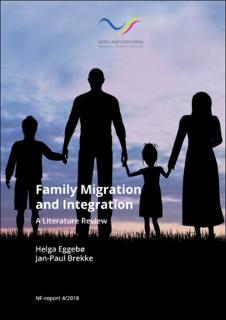| dc.description.abstract | In this report, we review existing research about family migration and integration. A key topic here is how immigration regulations affect integration. Marriages between a second-generation immigrant and a spouse from their parents’ country of origin have attracted significant political and academic interest. The findings from this research is presented in the report. Existing research also shows that family migration is commonly portrayed as a barrier to integration, and concerns over integration are used strategically to justify increasingly strict family immigration regulations. Yet, there is little empirical support for such claims. Restrictive measures on family migration, such as income requirements, pre-entry language and integration tests, and age limits, reduce the number of applications and residence permits granted for family migrants. Consequently, restrictive policies unavoidably lead to family separation that has a serious negative impact on families’ and children’s mental health, well-being and integration. The report presents a wide range of national and comparative studies and identifies topics for future research. | |
